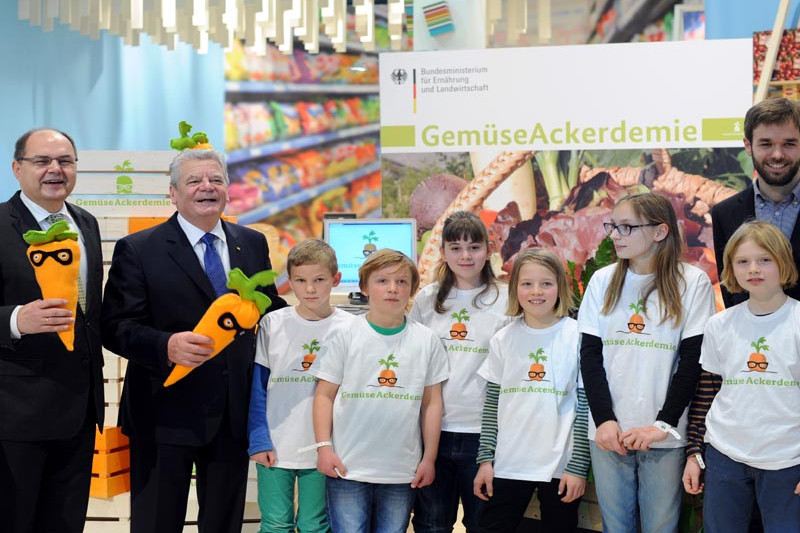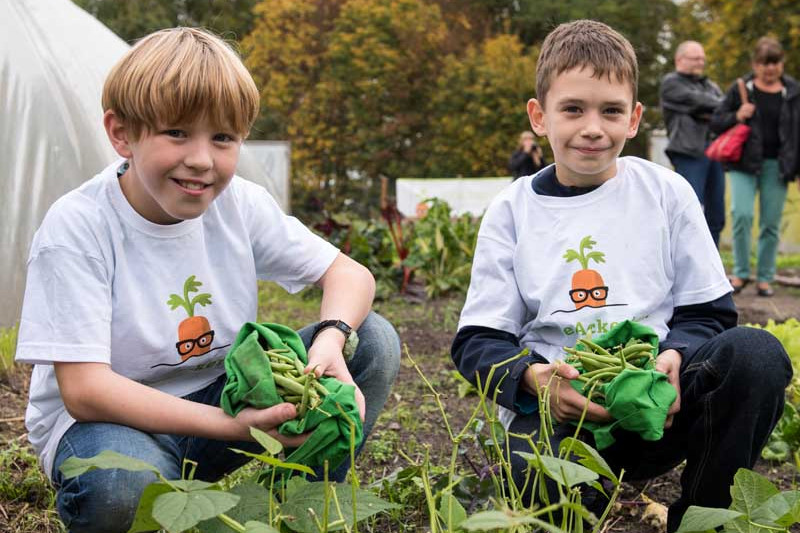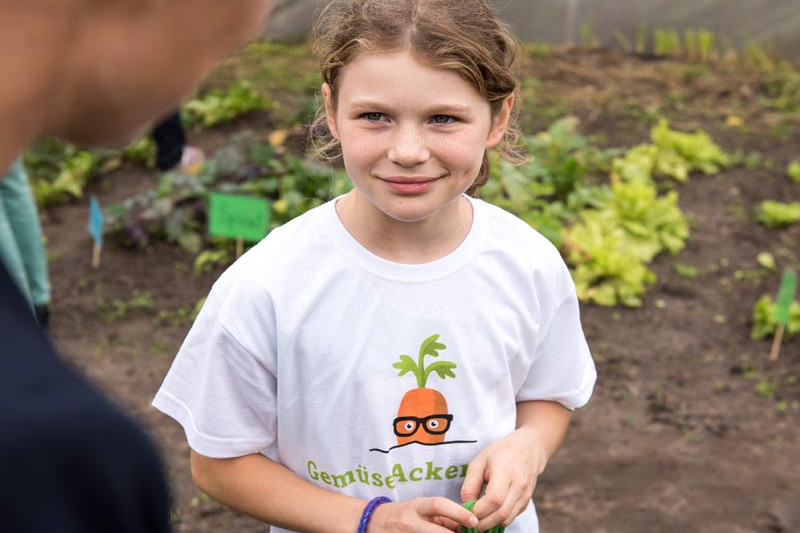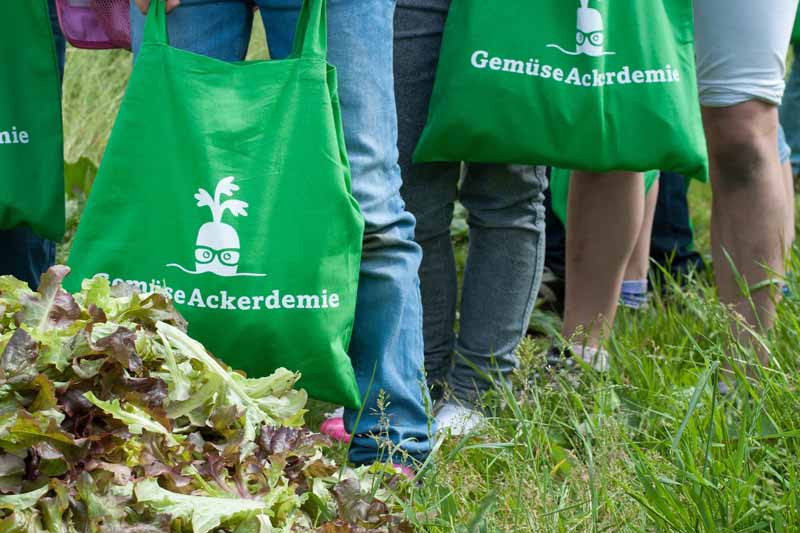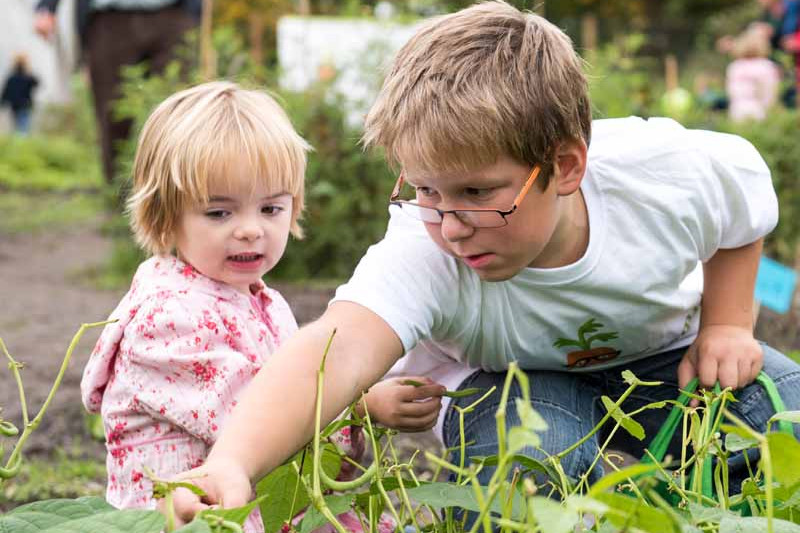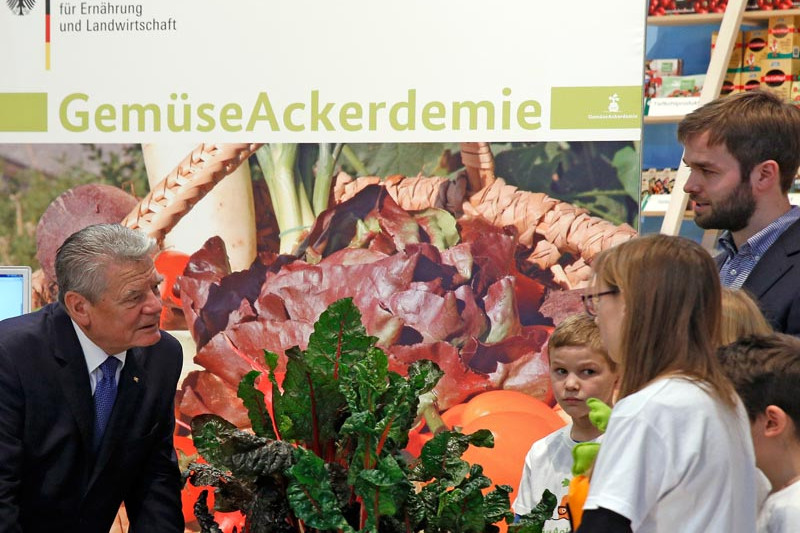Gardening Creates Knowledge! GemüseAckerdemie's School Gardens Help Students to Appreciate Food
Where does our food come from - and where is it actually grown? GemüseAckerdemie (Vegetable Academy) believes that the answer to this question lies in active learning. The organisation enables children and young people, together with their teachers, to plant and grow their own vegetables. In doing so, all of the participants not only learn valuable lessons about organic gardening, but also learn about how to value food and to handle it with respect.
Digging a garden bed, feeling the fresh earth between your fingers, planting seeds and weeding – today, few children and young people experience these elementary activities in their direct environment. Yet working in a garden is perhaps the simplest way to experience the value of our food in the trues sense of the word: once a child experiences how long it takes before a seed turns into a plant that blossoms and then finally bears fruit, once she experiences both the hard work and the sense of success of vegetable gardening, she has learned to value the tangible products of this labor in a whole new way.
But today, very few students have access to a school garden where such experiences are possible, and teaching plans often have no room for gardening or agriculture. Most school children only know that fruits and vegetables come from the supermarket. Here, a deeper knowledge of our food sources is urgently needed: many people lack today a direct relationship to their food, and almost two thirds of consumers in Germany regularly throw food away. A real appreciation of food looks different! Although a number of education campaigns are working to address this issue in schools, most of the programs remain very abstract, and results are few.
Actively Experiencing Natural Relationships
GemüseAckerdemie has a different, more action-oriented strategy. With its motto “Gardening creates knowledge,” the initiative has developed a comprehensive learning concept in which kids and young people can really get involved in gardening. The pilot project, running since 2013, is continually expanding and developing; there are now over 40 locations in Germany and Austria. The project's initiators help interested students to find a garden plot near the school and provide basic supplies. The students care for a small vegetable garden for a full gardening season in small, mixed-age groups. Together with a teacher and a mentor from among parents or grandparents, they plant various vegetable varieties, harvest the vegetables, and even market their produce. In this way they experience important natural relationships first hand, expand their knowledge, and even practice their social skills through cooperation with their classmates.
“Caring for a school garden means a lot of work, coordination, and organisation, which is often difficult considering the tight time budget of most school teachers. Furthermore, they often lack the information needed to successfully grow vegetables and transfer this knowledge to the children,” said Dr. Christoph Schmitz, co-founder and chairman of the organisation Ackerdemia, which is coordinating the project. “Teachers receive training as well as comprehensive teaching materials, including concrete methods for lesson preparation and design. Furthermore, we also support schools in the operational implementation and financing of the program. This all-in-one package makes it possible for them to offer a natural learning garden on a long-term basis. It's our goal for as many German students as possible to lean where our food comes from, how it is grown, and how we can handle our food with more awareness.”
Creating a Political Impact
This goal convinced the Software AG Foundation of the value of the project, as project manager Cornelius Sträßer explains: “What's special about the GemüseAckerdemia is that it is an attempt to bring a very simple concept into schools. At the same time, the program is so flexibly designed that it can be implemented throughout Germany in many different schools and can reach students who would otherwise never have the chance to work in a garden.” Another argument for the foundation's supporting this program was the scientific approach that they are taking to documenting the success of the program. They have interviewed children, teachers, and parents involved, and they cite almost exclusively positive experiences in the program and state that their handling of food has become more conscientious thanks to GemüseAckerdemia. “Given the alienation of certain populations from our food production, such experiences are extremely valuable. Although so-called farm education offers truly promising approaches to learning, there are hardly any public funds for projects in this area,” laments Sträßer. “In our view, GemüseAckerdemia has the potential to create an urgently needed political impact - not least because of the continuous scientific evaluation of the concept, which is clearly discernible in the participants' increased awareness of the value of food.”

